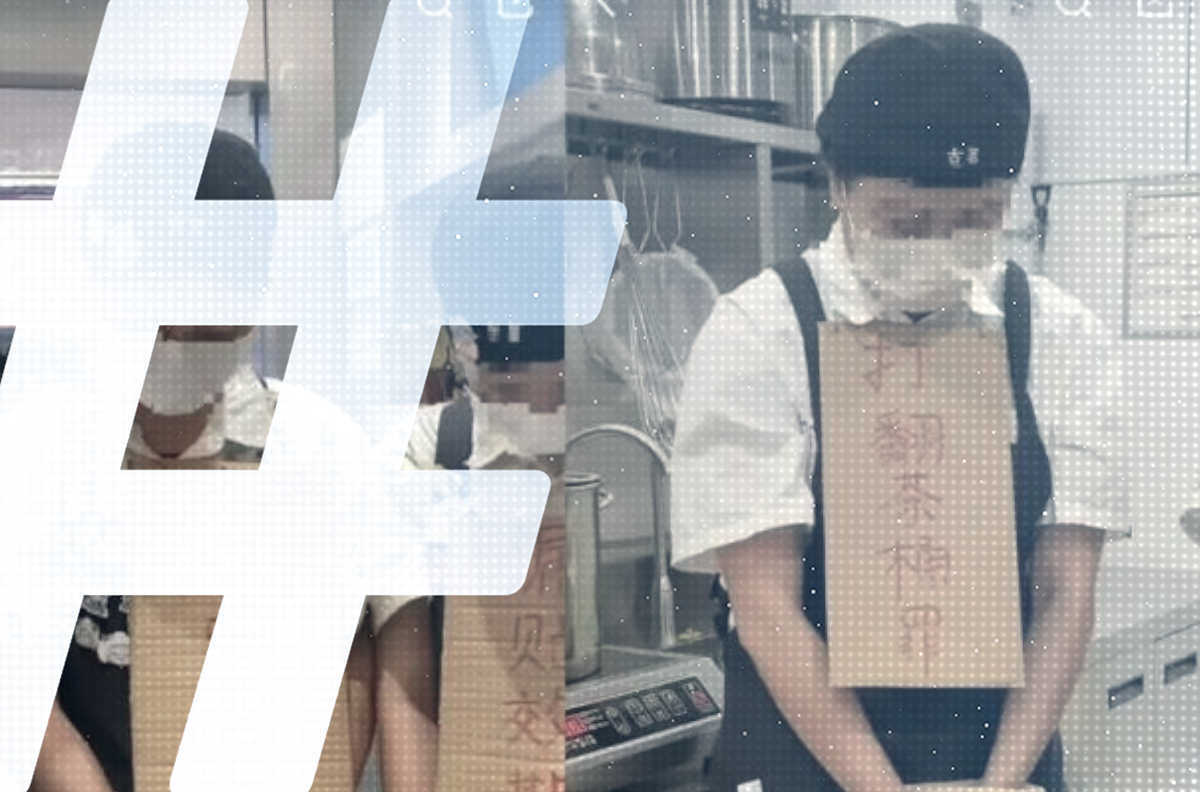- cross-posted to:
- world@lemmy.world
- news@beehaw.org
- cross-posted to:
- world@lemmy.world
- news@beehaw.org
On Wednesday last week, one of China’s largest tea chains found itself at the center of an online storm after a video emerged of employees for the company apparently wearing cardboard signs and makeshift cardboard handcuffs to enforce workplace discipline — public displays of shame that had disturbing echoes of the country’s political past.
The offending post, made on September 17 to the official Douyin and Xiaohongshu accounts of the Guangdong operations of Good Me (古茗茶饮) — a tea chain with more than 5,000 locations across the country — showed several employees on site at a Good Me shop standing with their heads cast down, their hands bound in front with what appeared to be cardboard cup holders. Handwritten signs around their necks read: “The crime of forgetting to include a straw”; and “The crime of knocking over the teapot.”
[…]
For China’s media and internet authorities, the Cultural Revolution is generally not a subject to be talked about at all. And for many Chinese who remember the period, which was ended by the ouster and arrest in October 1976 of the so-called Gang of Four, it remains a silent source of pain and fear.
[…]
Most comments on the video on both platforms expressed shock and ridicule at what seemed to be extremely unfair and inhumane treatment of employees on the one hand, and an acute lack of good taste on the other. By Wednesday the video had been removed and Good Me was scrambling to contain the damage.
[…]
Wow, these workers really need protection and power with relation to their employers
According to a report from Shanghai’s The Paper, the incident involved the company’s branch in Shenzhen’s Longhua district, where an employee involved in the filming said it was intended as a joke, and that the three employees in the video had volunteered to take part. The employee said the branch did not punish employees for small mistakes like forgetting straws
You edited out the bit that explains it was a joke.
I didn’t edit out anything. Everyone can read the the article to understand the issue and its context.
And there appear to be many who do not understand this ‘joke’:
Internet users responding to the apology, numbering more than 60,000 by noon Thursday, remained mostly unmoved. Some called on the company to make a public apology directly to the employees, while others suggested a video apology would be more appropriate. For most, it was reminder of the pitfalls of jumping on the video humor bandwagon.
You could’ve done anti-clickbait a service if you included that within the first impression. It’s not like everyone here reads pasted articles, unfortunately.
Not reading sounds like a you problem my dude.
I read it, but from past experience, I know that some people don’t. Either way, omitting something (intentionally or not) to make for a misleading post is still bad clickbait.
I couldn’t care less tbh.
Well, my point is that it can very realistically cause someone to have a wrong perception of Chinese workplace culture. Yes, it’s overworking, exhausting, and sometimes inhumane, but not to the point of violence.
Sure it was.
It’s. What. The. Article. Says.
It is what an employee, on company payroll says, actually. That’s what the guy above you is pointing out.



